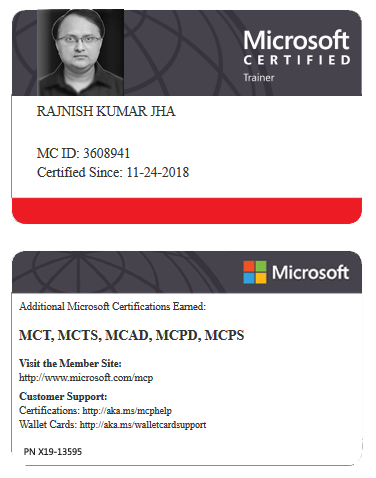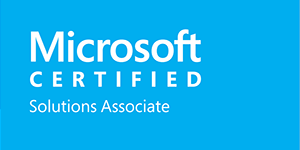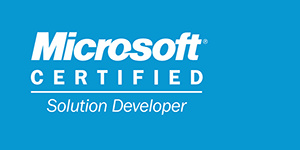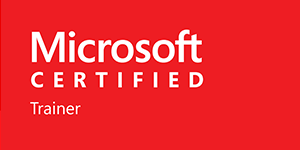Analyzing Dependency Management in DevOps
Dependency management refers to the process of handling and controlling the external libraries, packages, or modules that a software project depends on in order to function. In software development, projects often rely on third-party libraries, frameworks, and tools—these are known as dependencies.
Managing these dependencies properly is critical for maintaining the stability, security, and quality of the application.
Key Aspects of Dependency Management
Definition of Dependencies:
Dependencies are external libraries or modules that a project relies on to function.
They may provide functions, utilities, or resources that the project needs, such as:
Frameworks (e.g., React, Angular)
Databases (e.g., PostgreSQL, MongoDB)
Utilities (e.g., Lodash, jQuery)
Authentication libraries (e.g., OAuth libraries)
Types of Dependencies:
Direct Dependencies:
These are the libraries or packages your project directly uses.
Transitive Dependencies:
These are dependencies that are pulled in by your direct dependencies. For example, if library A depends on library B, library B is a transitive dependency of your project.
Version Management:
A key component of dependency management is specifying which versions of a dependency your project is compatible with. Different versions of a dependency may introduce new features or, in some cases, breaking changes. Managing the right versions ensures that your project remains stable and secure.
Tools like npm (for JavaScript), pip (for Python), or Maven (for Java) handle these versioning details and help avoid conflicts.
Package Managers:
Dependency management is typically handled through package managers, which are tools that automate the process of downloading, installing, and updating dependencies.
Common package managers include:
npm (for Node.js/JavaScript)
pip (for Python)
Maven (for Java)
NuGet (for .NET)
Composer (for PHP)
Dependency Resolution:
Dependency resolution is the process of determining which versions of dependencies are compatible with each other. When multiple libraries require different versions of the same dependency, this can result in dependency conflicts, often referred to as "dependency hell".
Most package managers resolve this by choosing a single version that satisfies the requirements of all dependent libraries, but this may sometimes require updating or adjusting other dependencies.
Lock Files:
Lock files (e.g., package-lock.json in npm, Pipfile.lock in Python) are used to record the exact versions of dependencies installed in a project. This ensures consistency across different environments, preventing issues where a project works on one machine but fails on another due to slight version mismatches.
Lock files help to lock in specific versions of dependencies so that the same version is used across all environments, avoiding unexpected changes.
Updating Dependencies:
Regular updates to dependencies are crucial for ensuring that security patches, bug fixes, and new features are applied. Tools like Dependabot for GitHub automatically create pull requests to update outdated dependencies in repositories.
However, developers must ensure that updates do not introduce breaking changes or cause conflicts within the project.
Security Management:
Dependency management is also crucial for security. Libraries and packages may have known vulnerabilities, which could pose a risk to the project. Tools like Snyk, WhiteSource, and GitHub Dependabot help identify and fix known security vulnerabilities in dependencies.
Regular audits of dependencies are important to minimize security risks, especially when using open-source libraries that are publicly maintained.
Build Automation & CI/CD Integration:
In continuous integration/continuous delivery (CI/CD) pipelines, dependency management ensures that dependencies are correctly installed, up-to-date, and consistent across different stages of the build and deployment process. Tools like Jenkins, GitLab CI, and Azure DevOps integrate with package managers to automate this process.
Why is Dependency Management Important?
Stability and Compatibility:
Ensures that the application remains stable by using compatible versions of dependencies.
Prevents "dependency hell"—a situation where conflicting or mismatched dependencies lead to build failures or runtime errors.
Security:
Regularly updating dependencies helps to mitigate the risk of vulnerabilities in third-party libraries.
Proper management helps to prevent known security issues from entering your project.
Collaboration:
Dependency management helps teams work together by ensuring that everyone is using the same versions of libraries, avoiding issues where one developer’s environment works while another’s does not.
Maintainability:
It’s easier to manage a project if dependencies are properly versioned, updated, and isolated. Without good dependency management, upgrading libraries can become a nightmare, especially if breaking changes occur.
Reducing Redundancy:
Proper dependency management ensures that libraries are not redundantly included in a project. For example, a project might need several dependencies, but many of them may rely on the same version of a common library (like a logging tool), so redundant instances should be avoided.
Tools for Dependency Management:
Here are some popular dependency management tools for various programming languages:
JavaScript (Node.js):
npm (Node Package Manager)
Yarn (alternative to npm)
pnpm (fast and disk-efficient package manager)
Python:
pip (Python Package Installer)
Poetry (Python dependency management and packaging tool)
Conda (package and environment management)
Java:
Maven (build automation tool and dependency management)
Gradle (another build tool for Java and other languages)
.NET:
NuGet (package manager for .NET)
PHP:
Composer (dependency management tool for PHP)
Ruby:
Bundler (dependency management for Ruby applications)
Challenges in Dependency Management:
Dependency Conflicts:
Dependencies that require incompatible versions of the same package can lead to conflicts. This is especially problematic when multiple libraries rely on different versions of the same dependency.
Vulnerabilities in Dependencies:
Dependencies might contain known vulnerabilities that can be exploited. Managing dependencies and keeping them updated is critical for maintaining application security.
Transitive Dependencies:
Sometimes, indirect dependencies (dependencies of dependencies) may introduce issues or conflicts that are harder to detect and resolve.
License Compatibility:
Dependencies may come with licenses that are not compatible with your project’s intended use. This can become an issue if you distribute or sell the software.
Best Practices for Dependency Management:
Use Lock Files:
Always use lock files (e.g., package-lock.json, Pipfile.lock) to ensure consistent versions across environments.
Audit Dependencies Regularly:
Use tools like Dependabot, Snyk, or WhiteSource to automatically monitor and update dependencies, and fix vulnerabilities.
Limit Dependency Bloat:
Avoid using unnecessary or excessive dependencies, which can increase the size of your project and introduce potential security risks.
Version Pinning:
Explicitly pin dependencies to specific versions to avoid surprises from automatic updates that could introduce breaking changes.
Automate Dependency Updates:
Use automated tools to help manage dependency updates and ensure that the software is kept up-to-date with the latest patches and features.
Summary
Dependency management is a crucial practice in modern software development. By carefully selecting, managing, and updating the external libraries and packages that your project relies on, you can ensure your software is stable, secure, and maintainable.
Whether using package managers or automated tools, managing dependencies effectively helps avoid issues such as version conflicts, security vulnerabilities, and maintenance headaches, thus contributing to a more robust and resilient application.






















Leave a Reply